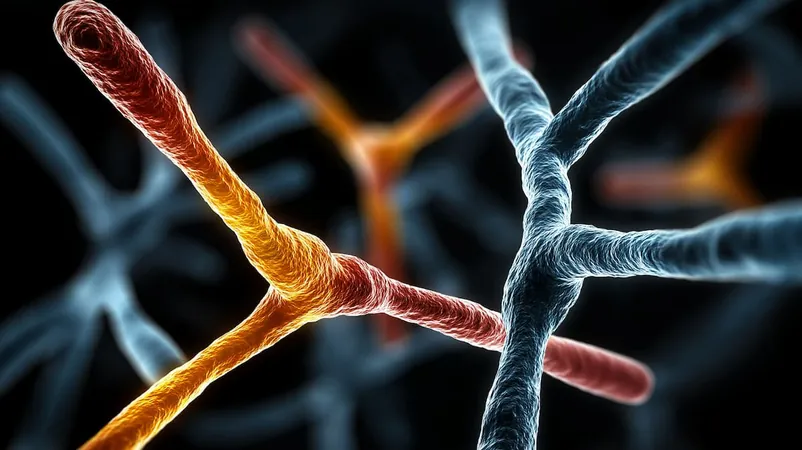
Man's Rare Health Scare Linked to ChatGPT Diet Advice: What You Need to Know!
2025-08-12
Author: Arjun
When AI Advice Goes Wrong: A Cautionary Tale
A shocking incident has emerged from a recent article published in the Annals of Internal Medicine, revealing how one man's casual inquiry to ChatGPT about reducing salt in his diet led to the development of a rare medical condition known as bromism, or bromide toxicity.
The Case of the 60-Year-Old Patient
The 60-year-old man, seeking to cut sodium chloride from his meals after reading about its health drawbacks, turned to ChatGPT for advice. He mistakenly switched to sodium bromide—a substance once used as a sedative in the early 20th century—over a period of three months.
What Exactly Is Bromism?
Bromism has a complicated history, once being a common ailment linked to psychiatric issues in the early 1900s. The patient reportedly experienced an alarming array of symptoms including paranoia, excessive thirst, and severe insomnia, raising eyebrows about the potential dangers of relying on AI for serious health advice.
A Wake-Up Call for AI and Health
The authors of the article, medical professionals from the University of Washington, highlighted the incident as a stark reminder of the risks associated with using artificial intelligence for health-related inquiries. They noted that without access to the patient's conversation with the AI, they couldn't pinpoint the specific advice given, but highlighted ChatGPT's failure to provide adequate health warnings.
AI's Role in Health: Are We Overrelying on It?
This case unfolds just as OpenAI announced an upgrade to ChatGPT, powered by the new GPT-5 model, boasting improved capabilities in addressing health queries. While the company emphasizes that the chatbot is not a substitute for professional medical advice, incidents like this raise critical questions about the reliance on AI tools.
A Needed Shift in How We Use AI Tools
As AI continues to bridge the gap between science and the public, experts caution against the dissemination of 'decontextualized' information. The article warns that no qualified medical professional would suggest sodium bromide in response to a request to replace table salt.
The Patient's Troubling Journey
The man was hospitalized after voicing concerns about being poisoned—a sign of the paranoia stemming from his condition. His symptoms required psychiatric intervention, ultimately leading to treatment for psychosis, as well as stabilization of his physical state.
Final Thoughts: Trust but Verify
This alarming case serves as a crucial reminder that while AI can provide valuable information, it should never replace professional medical advice. Doctors are encouraged to discuss with patients the origins of their health information to prevent similar incidents from occurring in the future.






 Brasil (PT)
Brasil (PT)
 Canada (EN)
Canada (EN)
 Chile (ES)
Chile (ES)
 Česko (CS)
Česko (CS)
 대한민국 (KO)
대한민국 (KO)
 España (ES)
España (ES)
 France (FR)
France (FR)
 Hong Kong (EN)
Hong Kong (EN)
 Italia (IT)
Italia (IT)
 日本 (JA)
日本 (JA)
 Magyarország (HU)
Magyarország (HU)
 Norge (NO)
Norge (NO)
 Polska (PL)
Polska (PL)
 Schweiz (DE)
Schweiz (DE)
 Singapore (EN)
Singapore (EN)
 Sverige (SV)
Sverige (SV)
 Suomi (FI)
Suomi (FI)
 Türkiye (TR)
Türkiye (TR)
 الإمارات العربية المتحدة (AR)
الإمارات العربية المتحدة (AR)